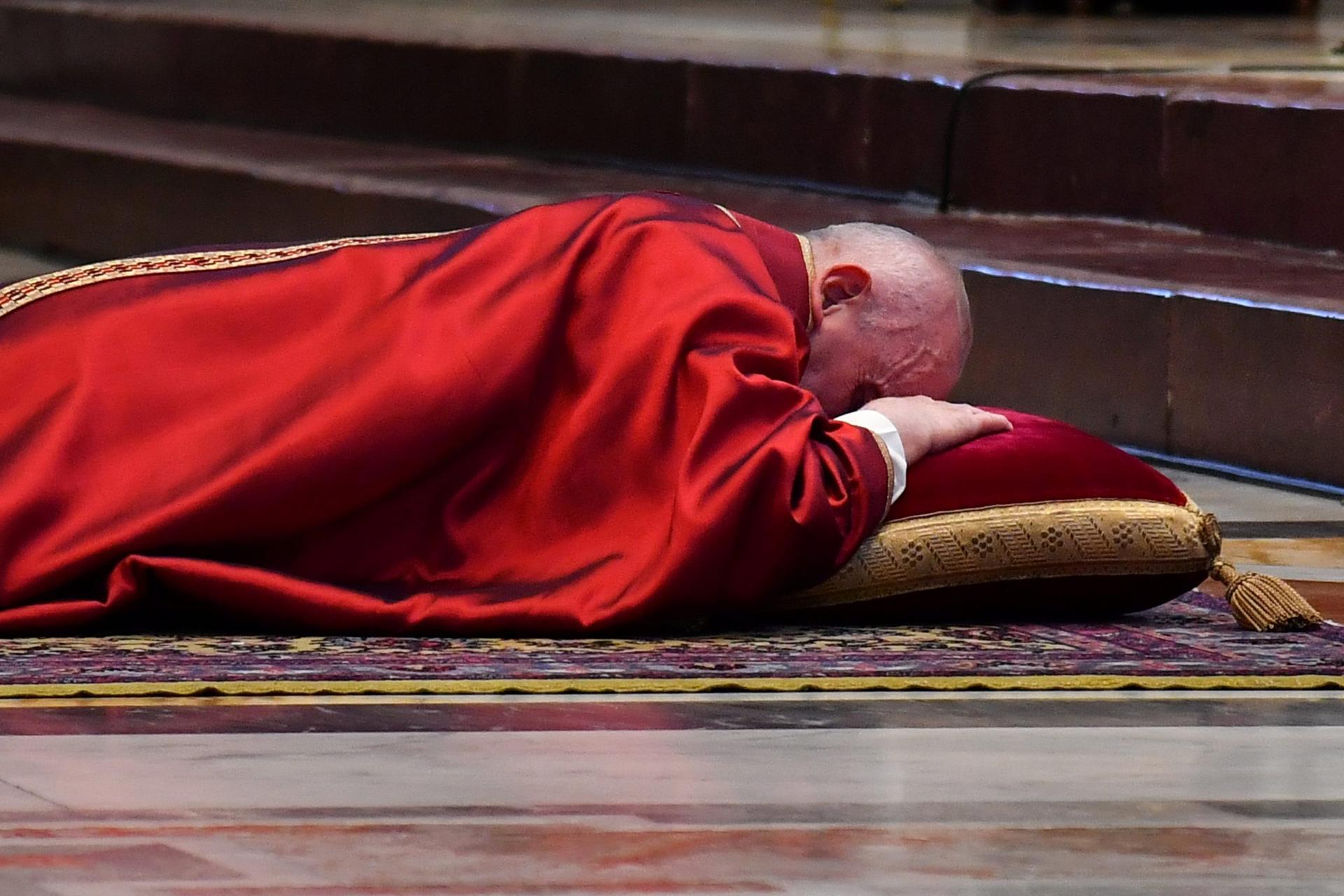ROME – After reflecting on the biblical meaning of fraternity during the Vatican’s Passion of the Lord, the papal preacher on Good Friday lamented the disunity existing among Catholics.
“Fraternity among Catholics is wounded,” said Cardinal Raniero Cantalamessa. “Divisions between Churches have torn Christ’s tunic to shreds, and worse still, each shredded strip has been cut up into even smaller snippets. I speak of course of the human element of it, because no one will ever be able to tear the true tunic of Christ, his mystical body animated by the Holy Spirit.”
“In God’s eyes, the Church is ‘one, holy, catholic and apostolic’, and will remain so until the end of the world,” he said. “This, however, does not excuse our divisions, but makes them more guilty and must push us more forcefully to heal them.”
The “Passion of the Lord” service is the only liturgy presided over by the pope in which he’s not the homilist. Instead, the task falls on Cardinal Raniero Cantalamessa – elevated to the Church’s most exclusive club last year, after four decades serving as the preacher of the papal household.
As has been the case since the beginning of the COVID-19 pandemic, the liturgy was almost devoid of the presence of faithful, with less than 200 participants, including cardinals, acolytes and Vatican’s gendarmes and Swiss Guards, present in St. Peter’s Basilica guarding the pope.
After processing to the Altar of the Chair in St. Peter’s Basilica in eerie silence, the 84-year-old Pope Francis prostrated himself before the altar. During the service, the Gospel recounted the last hours in Jesus’ life, from his arrest to his burial.
Leading by example, in a country currently in full lockdown due to the pandemic, the veneration of the cross, when each faithful goes in procession kiss a statue of Christ crucified, was omitted.
Fraternity, Cantalamessa said, is built in the same way peace is built: “that is starting close by, with ourselves, not with great strategies and ambitious, abstract objectives. For us, that means universal fraternity starts with the Catholic Church.”
However, he noted that the Church is experiencing disunity.
“What is the most common cause of the bitter divisions among Catholics? It is not dogma, nor is it the sacraments and ministries, none of the things that by God’s singular grace we fully and universally preserve,” he said. “The divisions that polarize Catholics stem from political options that grow into ideologies taking priority over religious and ecclesial considerations and leading to complete abandon of the value and the duty of obedience in the Church.”
“In many parts of the world, these divisions are very real, even though they are not openly talked about or are disdainfully denied,” Cantalamessa continued. “This is sin in its primal meaning. The kingdom of this world becomes more important, in the person’s heart than the Kingdom of God.”
The papal preacher then said he believes every Catholic needs to make a “serious” examination of conscience when it comes to fueling these divisions, and “be converted.”
“Fomenting division is the work par excellence of the one whose name is ‘diabolos’ that is, the divider, the enemy who sows weeds, as Jesus referred,” Cantalamessa said. “We need to learn from Jesus’s example and the Gospel. He lived at a time of strong political polarization,” yet Jesus didn’t side with any of them, rejecting any attempt to be pulled towards one or the other.
The earliest Christian community, he noted, followed Jesus choice to not align to any political party, setting an example for pastors who are called to shepherd the entire flock entrusted to them, not a part of it. In this sense, pastors “need to be the first to make a serious examination of conscience. They need to ask themselves where it is that they are leading their flocks – to their position or Jesus’.”
Cantalamessa continued by arguing that the Second Vatican Council entrusted laypeople with the task of translating the social, economic and political implications of the Gospel into practice in different historical situations, always in a respectful and peaceful way.
Later in the evening, in an empty St. Peter’s Square, Francis was to lead the Way of the Cross.
On Saturday night, he will lead the Easter vigil service, and on Easter Sunday, after celebrating Mass in the basilica, he will read the traditional Urbi et Orbi (To The City and The World) message.
Follow Inés San Martín on Twitter: @inesanma














